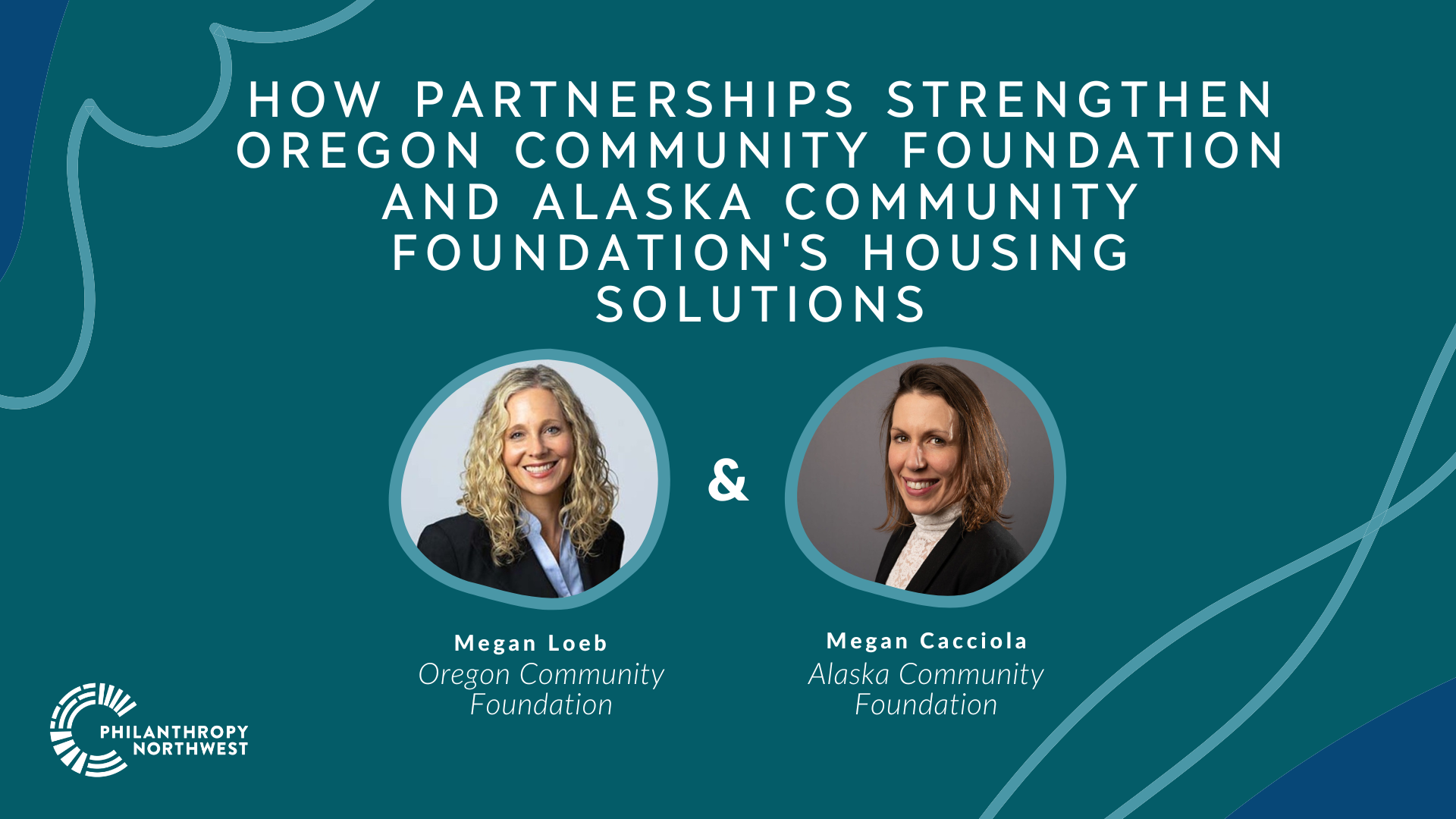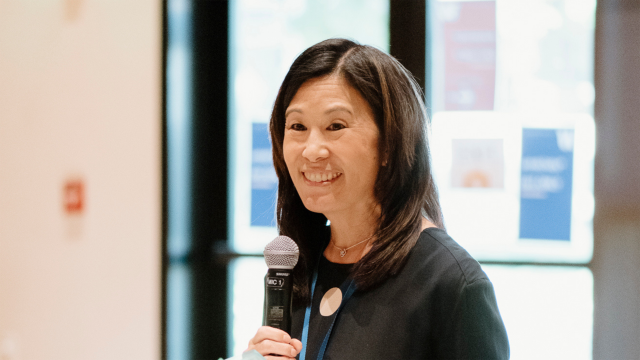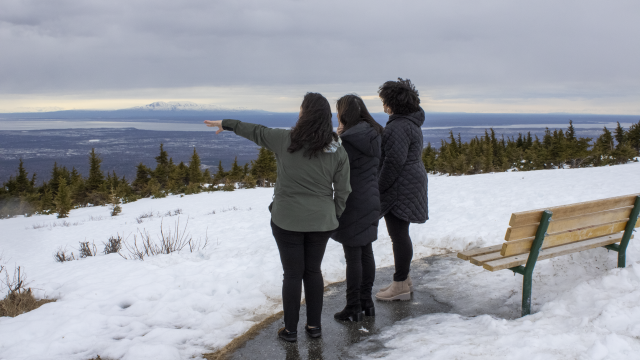
Homelessness is something that affects all states in our region. In our network, community foundations like Oregon Community Foundation and Alaska Community Foundation are working on housing solutions and partnering with their state governments and fellow funders to maximize their impact.
Oregon Community Foundation’s (OCF) mission is to “improve lives for all Oregonians through the power of philanthropy,” and considering the significant role this foundation played in Project Turnkey – Oregon’s response to housing insecurity – when OCF said all Oregonians, they meant it.
OCF’s Senior Program Officer, Megan Loeb, provided some background on Project Turnkey. “Project Turnkey is the result of a few things,” says Megan. “When it was first launched, Oregon, like many west coast states, was in a housing crisis that had been worsened by the pandemic. On top of that, there were the 2020 Labor Day Fires that destroyed over 4,000 homes leaving hundreds of people homeless. Basically, the state had no choice, but to act, and that’s how we got Project Turnkey.”
In 2020, the Oregon Legislature allocated $65 million toward Project Turnkey 1.0 to purchase motels and hotels for immediate use by those displaced by the state’s housing crisis. OCF acted as a convener and fiduciary for the project, paving a pathway forward for funding to flow easily to communities that would eventually own and manage the purchased properties.
“Essentially, this was a partnership with the state,” Megan says. “Because we were part of the convening and feasibility process, ultimately OCF became fund administrators and a fiduciary for the project, something we were honored to do. Without a fund administrator, getting money from the state to the communities would have taken much longer.”
“In this position, we wanted local communities to have a voice because these [motels and hotels] are locally managed assets, so we created a statewide community advisory committee to review, recommend and respond to unique community needs. I want to mention that because while this project was stewarded by OCF, it was led by individual communities and their individual agency.”
Less than seven months after its launch, Project Turnkey 1.0 increased the state supply of shelter beds by 20%, providing 865 new housing units to those experiencing homelessness. Since then, the project has transitioned to its 2.0 version with an additional $50 million being provided to continue addressing homelessness in Oregon.
The Alaska Community Foundation (ACF) is also working on housing solutions in Alaska. According to Megan Cacciola, vice president of grants and programs at ACF, homelessness in Alaska is something most people outside the state don’t think about.
While not an Alaska-specific issue, the state’s unique conditions make life for individuals experiencing homelessness particularly difficult. For example, in 2022 the largest low-barrier shelter in Anchorage was shut down. The improvised campsite for unhoused people resulted in many human-bear encounters because of the city’s proximity to nature. This past year Alaska also had severe cold snaps and unprecedented levels of snow, blocking sidewalks and bus stops, making pedestrians walk in the middle of busy streets.
“If we were to talk about Alaska overall, homelessness can be traced to things like rising housing prices, lack of permanent available housing and rural transplants getting stuck in urban areas. Rural Alaska is mostly Alaska Native, and the homeless population is disproportionately Native,” says Megan. “Sometimes it’s just a matter of being cut off from their community where they have a stronger network of support than in the city.”
Because of Alaska’s smaller funding pool, ACF is a particularly donor-driven foundation. The organization supports issues brought to them by their funders and partners, creating a more collaborative effort. Since the COVID-19 pandemic, Alaska’s nonprofit leaders saw a need to align, not silo their work around homelessness. Because of ACF’s community relationships, they were part of this large partnership.
“If one nonprofit had been the recipient of all the funding, the impact would have been limited and created a power imbalance,” Megan says. “The solution to address the ripple effects of the low-barrier shelter closing had to be bigger than an individual mission. ACF held the funds, and worked with Michele Brown from the Rasmuson Foundation to fund the acquisition of three buildings that would be turned into shelters and resource centers for those experiencing homelessness.”
Going forward, ACF plans on working with the Housing Alaskans Public Private Partnership to improve housing for Alaskans.
“It’s about working together for Alaskans,” she says, referencing the partnership. “A project where everyone has a stake in this thing.”


